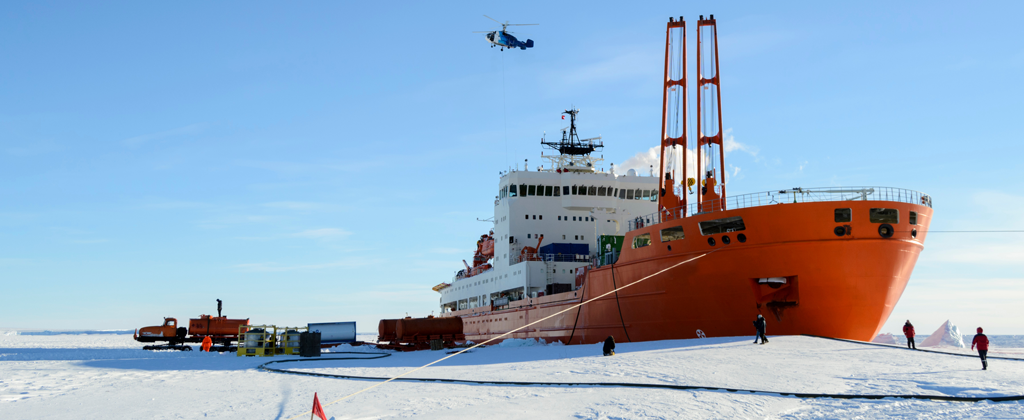Oceanography
Master’s Degree Program
Conduct oceanographic research on the frontlines of climate change. Work with leading international experts on high-latitude ecosystems. Contribute to high-profile reports, panels, committees and steering groups. The master’s degree in oceanography at UAF offers opportunities unlike anywhere else in the world.
The study of oceanography affects the ways we use the sea for food, energy, water and more. It applies chemistry, biology, geology, physics and other branches of science to address some of today’s most fundamental challenges — like how a changing climate can impact the quantity of resources we depend on from the sea.
UAF's oceanography master’s program focuses on the high latitudes of the North Pacific and the Arctic Ocean, a region experiencing some of the planet’s most rapid rates of change. It also brings together some of the leading authorities in the field, with faculty who serve on state, federal, international and non-governmental advisory panels.
Get more information
Why Earn Your Oceanography Degree at UAF?
At the University of Alaska Fairbanks, oceanography connects directly to everyday life. From fishing, to tourism, to energy, the Alaska economy, community and culture are all critically dependent on marine resources. UAF is also centrally located to all of Alaska’s large marine ecosystems: The Gulf of Alaska, the Bering Sea, the Chukchi Sea and the Arctic Ocean. Here are more reasons why UAF offers one of the best oceanography graduate programs in the nation.
What Can You Do with an Oceanography Degree?
Oceanography graduates take on various careers across state, federal and international agencies that are responsible for managing the oceans from regional to global scales. The demand for sustainable energy sources and climate change research, continues to fuel faster-than-average growth for many careers in the field.
Many graduates also pursue doctoral programs in oceanography and faculty positions within institutions of higher education.
Oceanography master’s degree jobs include:
- Marine biologist
- Fisheries scientist
- Physical oceanographer
- Aquatic chemist
- Ocean geologist
- Research scientist
- Climate data scientist
Oceanography Master’s Degree Requirements
Oceanography courses at UAF explore a range of topics depending on your specialization area. Some academic preparation in biology, chemistry, physics, math (including calculus) and geology is advised. Concentrations are offered in physical oceanography, chemical oceanography, biological oceanography, geological oceanography and fisheries oceanography.
Graduate Programs Related to Oceanography
- Marine Science
- Marine Biology
Get Started on Your Master’s Degree in Oceanography
Take the next step toward earning your master’s degree. We have the resources to help you get started.



